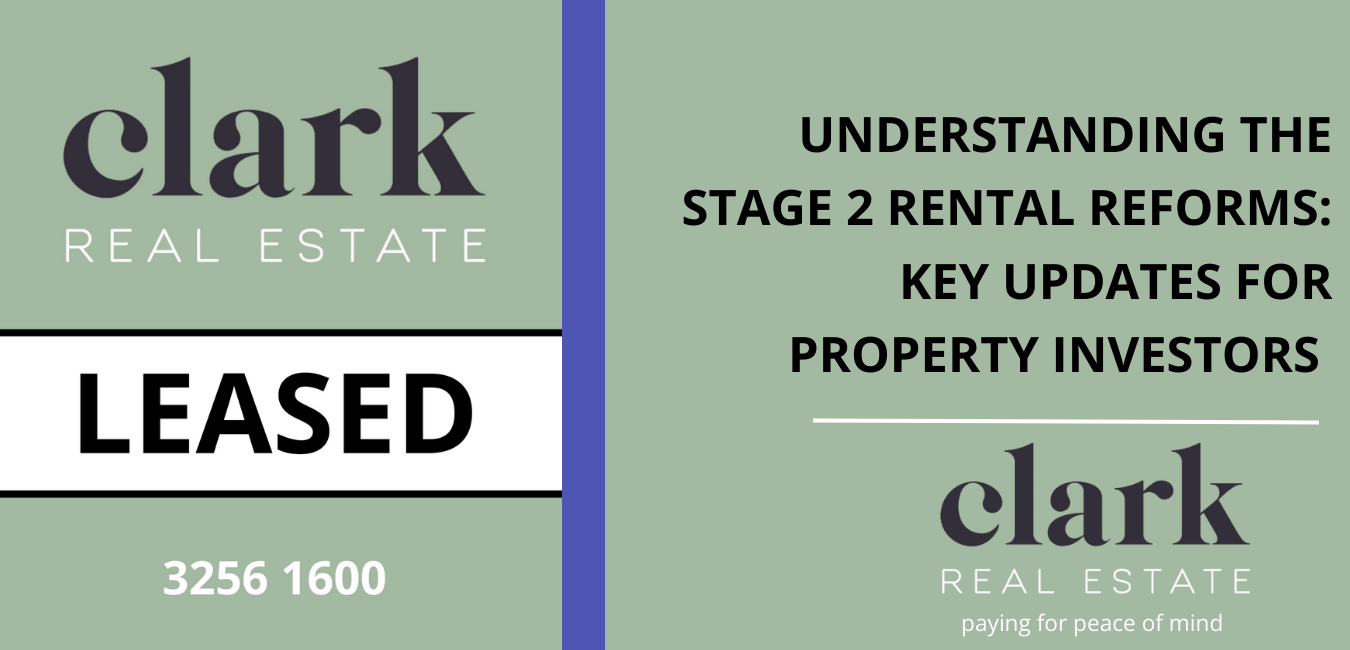
As a property investor in Queensland, staying abreast of legislative changes is crucial to managing your investments effectively. The recent amendments under the Residential Tenancies and Rooming Accommodation and Other Legislation Amendment Act 2024 mark a significant shift in rental laws, impacting general tenancies, rooming accommodations, and moveable dwellings. These reforms, passed by the Queensland Parliament on May 23, 2024, will be rolled out in two stages, introducing a range of new regulations aimed at balancing tenant rights and property management practices. Here’s a comprehensive look at what these changes entail and how they could affect you as an investor.
Immediate Changes to Rental Laws
The first stage of reforms brings several immediate changes to rental laws, focusing on rent practices and enhancing tenant protections.
Rent Practices and Increases
- Rent Bidding Ban: Property managers and owners can no longer solicit or accept rent offers higher than the advertised price, eliminating rent bidding practices.
- Maximum Rent in Advance: At the start of a new tenancy, landlords cannot ask for more than two weeks’ rent in advance for periodic agreements or one month for fixed-term agreements.
- Annual Rent Increases: Rent increases are now limited to once every 12 months and are tied to the property rather than the tenancy. Written agreements must indicate the date of the last rent increase.
- Evidence of Rent Increases: Tenants can request written evidence of the last rent increase, which must be provided within 14 days. However, this requirement does not apply if the property was purchased within the last 12 months and the new owner does not have this information.
Undue Hardship Provisions
- Tribunal Applications for Rent Increases: Landlords experiencing undue hardship can apply to the Queensland Civil and Administrative Tribunal (QCAT) for permission to increase rent within the 12-month period. The tribunal will consider tenant affordability and their ability to continue paying rent.
Fixed Price Requirement
- Rooming Accommodation: All rooming accommodations must now be advertised at a fixed price, ensuring transparency and fairness in rental listings.
Upcoming Changes: Enhancing Tenant Rights and Protections
The second stage of reforms, with dates yet to be confirmed, will introduce further changes to enhance tenant rights and streamline rental processes.
Re-letting Costs
- Calculation Based on Tenancy Duration: Re-letting costs will be calculated based on the remaining term of the tenancy agreement and whether it exceeds three years, ensuring fair cost distribution.
Rent Payment Options
- Multiple Payment Methods: Tenants must be offered at least two ways to pay rent, including an option that does not incur additional bank fees and is reasonably accessible.
Utility Bills and Bond Claims
- Utility Bill Timeliness: Landlords must provide utility bills within four weeks unless there is a reasonable excuse, failing which tenants are not obliged to pay.
- Bond Claims: Managing parties must now support bond claims or disputes with evidence within 14 days, ensuring transparency and accountability in bond management.
Balancing Privacy and Access
New regulations aim to balance tenant privacy with necessary property access for maintenance and inspections.
Entry Notice and Frequency
- Extended Entry Notice: The minimum notice period for entry has increased from 24 hours to 48 hours.
- Entry Limits Post-Tenancy Notice: New limits will apply to the frequency of property entry after a notice to end the tenancy has been issued, protecting tenant privacy.
Rental Bond Processes and Dispute Resolution
Changes to bond processes aim to simplify and clarify the handling of rental bonds and disputes.
Commercial Bond Loans and Rooming Accommodation Bonds
- Refund Process Changes: The process for refunding bonds involving commercial bond loan suppliers has been revised.
- Mandatory Bond Lodgement: Bonds must be lodged for rooming accommodations, including those where the owner resides on the premises with no more than three rooms for rent.
New Regulations and Enforcement Mechanisms
The amendments also introduce new regulations and enforcement mechanisms to ensure compliance and protect tenant rights.
Establishing New Regulations
- Portable Bond Scheme: New regulations will oversee the development and implementation of a portable bond scheme, enhancing tenant flexibility.
- Rental Sector Code of Conduct: A new code of conduct will be established to standardize rental practices and ensure fair treatment of tenants.
- Modifications for Safety and Accessibility: New guidelines will be introduced for making safety, security, and accessibility modifications to rental properties.
Information Sharing and Enforcement
- Expanded Information Sharing: The Residential Tenancies Authority (RTA) will now share information with other regulatory bodies, such as the Office of Fair Trading, to enhance regulatory oversight.
- False Information Penalties: Providing false or misleading information to the RTA will now incur penalties, ensuring greater accountability.
Other Important Changes
Additional amendments focus on clarifying tenancy terminations, managing goods left behind, and addressing domestic and family violence situations.
Ending Tenancies and Managing Left Behind Goods
- Clearer Termination Guidelines: New guidelines clarify the process for ending tenancies in specific situations, including short tenancies for moveable dwellings and terminations related to community title schemes.
- Revised Goods Management: Updated procedures for managing goods left behind by tenants aim to simplify and streamline the process for landlords.
Domestic and Family Violence Provisions
- Enhanced Confidentiality: Amendments to terminology and expanded confidentiality requirements aim to better protect tenants experiencing domestic and family violence.
The Stage 2 rental reforms in Queensland mark a significant step towards modernizing the rental market, balancing tenant protections with the needs of property owners. For investors, staying informed about these changes is crucial to ensure compliance and maximize the return on your investments. As these reforms roll out, it’s essential to work closely with property managers and legal advisors to navigate the new regulatory landscape effectively. By understanding and adapting to these changes, you can continue to make informed investment decisions and maintain the profitability of your rental properties in Brisbane’s dynamic real estate market.

